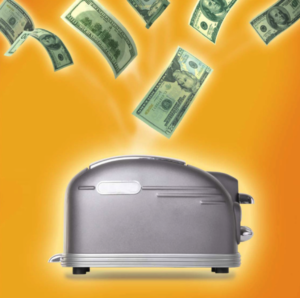Dear Liz: I had a credit card that didn’t expire until 2024 but the issuer closed my account because it hadn’t been used in a few years. During these difficult times, I didn’t want to get into a lot of debt by using too many cards. The issuer should have let me know this could happen so that I could have used it at least once a year.
Answer: You’re smart not to want to charge your way into debt. If you want to keep a credit card from being closed for inactivity, though, you need to use it — and probably more than once a year.
One way to do so is to charge a recurring cost, such as a streaming video subscription, to the card. You can set up the payment to be automatic as well. You should still review the account’s transactions every month to ensure everything is working as planned and no fraudulent charges have been made. But otherwise, this approach is a low-effort way to keep open your access to credit.
 Today’s top story: Smart ways to negotiate your salary in an uncertain economy. Also in the news: Student loan scams are on the rise, 5 things to consider when picking a college in the COVID-19 era, and how to claim retroactive unemployment benefits.
Today’s top story: Smart ways to negotiate your salary in an uncertain economy. Also in the news: Student loan scams are on the rise, 5 things to consider when picking a college in the COVID-19 era, and how to claim retroactive unemployment benefits.  Today’s top story: Why you should stop waiting to sell your home. Also in the news: How to find a Black financial advisor, sharing renters insurance with a roommate, and why you need to start claiming crypto on your taxes.
Today’s top story: Why you should stop waiting to sell your home. Also in the news: How to find a Black financial advisor, sharing renters insurance with a roommate, and why you need to start claiming crypto on your taxes. Today’s top story: 5 IRA mistakes you may be making. Also in the news: 8 reasons why an RV is your spring break best friend, the Black homeownership gap, and how to keep your expiring travel reward points.
Today’s top story: 5 IRA mistakes you may be making. Also in the news: 8 reasons why an RV is your spring break best friend, the Black homeownership gap, and how to keep your expiring travel reward points.  Today’s top story: The latest trends in home renovations and how to pay for them. Also in the news: 4 tips for starting or restarting a business in tough times, student loan forgiveness scams, and key 2021 financial deadlines to add to your calendar.
Today’s top story: The latest trends in home renovations and how to pay for them. Also in the news: 4 tips for starting or restarting a business in tough times, student loan forgiveness scams, and key 2021 financial deadlines to add to your calendar.  Today’s top story: How to get the most home insurance help after a winter storm. Also in the news: A new episode of the Smart Money podcast on filing your taxes early and tapping into your home equity, 8 ways to take your credit card rewards to the next level in 2021, and how to get relief with your federally backed mortgages.
Today’s top story: How to get the most home insurance help after a winter storm. Also in the news: A new episode of the Smart Money podcast on filing your taxes early and tapping into your home equity, 8 ways to take your credit card rewards to the next level in 2021, and how to get relief with your federally backed mortgages. Today’s top story: Turn your quarantine clutter into money. Also in the news: 10 digital banking services changing up checking, what to do when you’re a victim of debit card fraud, and how your stimulus checks will affect your taxes.
Today’s top story: Turn your quarantine clutter into money. Also in the news: 10 digital banking services changing up checking, what to do when you’re a victim of debit card fraud, and how your stimulus checks will affect your taxes. Today’s top story: Why you may not want to be an executor. Also in the news: 5 ways to foil catalytic converter thieves, 3 money habits to carry forward from the pandemic era, and how to avoid fees when paying your taxes.
Today’s top story: Why you may not want to be an executor. Also in the news: 5 ways to foil catalytic converter thieves, 3 money habits to carry forward from the pandemic era, and how to avoid fees when paying your taxes.